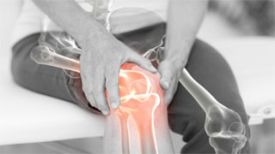1、 The importance of rehabilitation training
Rehabilitation training refers to a series of specially designed physical and psychological activities that help patients recover or maintain their optimal functional state. For NHL patients, rehabilitation training can help them reduce fatigue, improve physical function, enhance psychological status, and ultimately improve their quality of life.

2、 The main directions of rehabilitation training
1. Physical exercisePhysical exercise is considered an important means to improve the quality of life of NHL patients. Research has shown that regular aerobic exercise and strength training can effectively improve patients' physical function, reduce fatigue, enhance psychological resilience, and overall quality of life. Specific training programs can include aerobic activities such as walking, jogging, swimming, or cycling, as well as strength training using dumbbells or fitness equipment. Rehabilitation training should comprehensively consider individual differences, including sports rehabilitation, psychological intervention, and nutritional support.
2. Psychological support
Psychological support is an indispensable part of rehabilitation training for NHL patients. Through psychological counseling, support groups, or stress management training, patients can learn how to better handle disease-related psychological stress, anxiety, and depression. Social support, including support from family, friends, and like-minded groups, also plays an important role in improving the mental health and quality of life of patients.
3. Nutrition guidance
Reasonable nutritional intake is equally important for the rehabilitation training of NHL patients. Malnutrition not only affects the patient's immune function, but may also reduce the body's tolerance to treatment. Therefore, nutritional guidance should focus on ensuring sufficient energy and nutrient intake to help patients maintain or improve their physical condition.
3、 Implementation of rehabilitation training plan
When implementing rehabilitation training plans for NHL patients, consideration should be given to the specific situation of each patient, including factors such as disease stage, physical condition, and treatment response. The plan should be personalized and carried out under the guidance of medical professionals.
1. Pre start evaluation
Before starting any rehabilitation training, a comprehensive assessment of the patient should be conducted, including physical examination, quality of life assessment, and assessment of potential psychological issues.
2. Training Plan Design
Based on the evaluation results, design a comprehensive rehabilitation training plan that includes physical exercise, psychological support, and nutritional guidance. The plan should be flexible and can be adjusted based on patient feedback and course progress.
3. Monitoring and evaluation
During the rehabilitation training process, the patient's physical and psychological status should be regularly monitored, and the training plan should be adjusted in a timely manner to adapt to the patient's changes. After rehabilitation, follow-up evaluations should also be conducted on patients to evaluate the effectiveness of training.
Non Hodgkin's lymphoma patients can effectively improve their quality of life by implementing personalized rehabilitation training programs. This process requires not only the patient's own efforts, but also the support and cooperation of the medical team, family, and society. With the emergence of more research results on rehabilitation training, it is believed that more scientific and effective rehabilitation plans can be provided for NHL patients in the future.
The rehabilitation training for non Hodgkin's lymphoma patients should focus on various aspects such as exercise rehabilitation, psychological intervention, and nutritional support, and comprehensively use various rehabilitation intervention methods to improve the quality of life of patients. In practice, attention should be paid to individualized adjustment of intervention plans, taking into account both the patient's pathological status and treatment response, as well as their psychological and social needs, in order to achieve comprehensive recovery of the patient.


